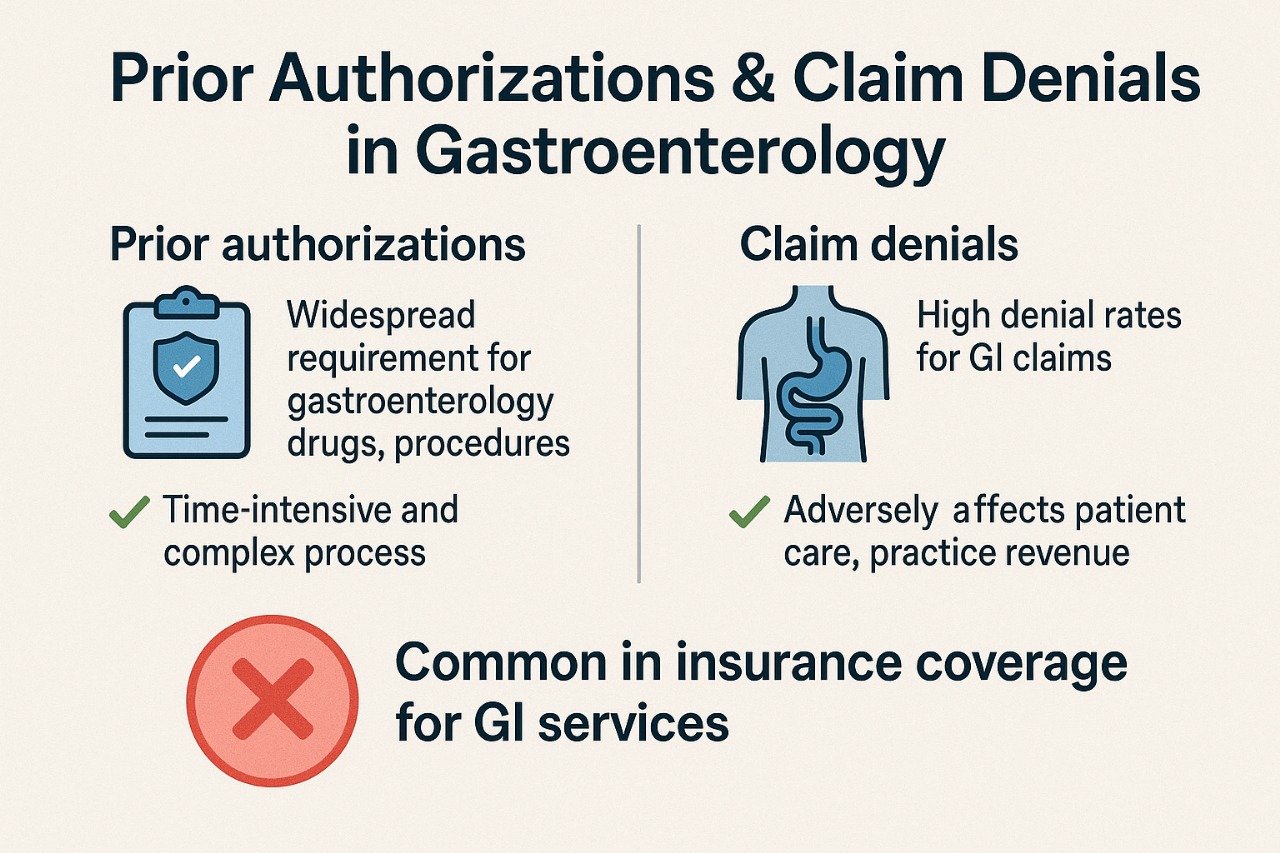
Prior Authorisations & Claim Denials in Gastroenterology
Gastroenterology practices in the United States face mounting challenges due to the complex and time-consuming processes involved in prior authorisations (PAs). These administrative requirements, often mandated by insurance providers to approve procedures or medications before coverage is granted, place a significant burden on healthcare professionals. On average, GI providers spend approximately 13 hours per week managing around 39 PA requests, with 92 % of clinicians reporting delays that negatively impact patient care, and 33 % observing instances where patients abandon treatment entirely due to these administrative hurdles (CCDcare, 2024). Such interruptions not only compromise the quality of care but also create financial instability for GI practices, especially when procedures are delayed or cancelled.
The consequences of these inefficiencies are evident in rejection rates. According to data from the Medical Group Management Association (MGMA), claim denial rates in gastroenterology stand at around 6.7 %, significantly higher than the average across other medical specialties. These denials often stem from delays in receiving PA approvals, incorrect documentation, or inconsistencies in payer-specific requirements. In response, many GI practices are adopting electronic prior authorisation (ePA) systems, real-time eligibility verification, and workflow automation technologies such as AI and robotic process automation (RPA) to streamline approvals and enhance operational efficiency (Staffingly, 2024). These tools integrate seamlessly with Electronic Health Records (EHRs), enabling practices to pre-code GI-related procedures, automatically flag compliance issues, and reduce reliance on manual administrative processes.
By leveraging these digital solutions, gastroenterology practices can ensure quicker turnaround times on authorisation requests, reduce human error, and improve first-pass approval rates. For example, platforms like PrimeWell Med Solutions offer intelligent PA software that not only assists in procedural documentation but also maintains a live repository of insurer rules and updates (PrimeWellMedSolutions, 2024). This level of integration minimises the chance of denials caused by policy mismatches or coding inaccuracies. Moreover, such technology allows clinicians to focus more on patient care and less on bureaucratic navigation.
In addition to technological advances, regulatory reforms are being introduced to ease the prior authorisation burden. The Centers for Medicare and Medicaid Services (CMS) has implemented interoperability and prior authorisation rules in 2024, mandating that payers automate certain PA processes and provide quicker responses through API-driven systems (CCDcare, 2024). Furthermore, some U.S. states are rolling out “gold card” programmes, which exempt providers with high prior authorisation approval rates from needing to obtain them routinely—thus rewarding efficiency and reliability in medical decision-making.
In summary, prior authorisation and claim denial processes represent a critical bottleneck in gastroenterology billing and care delivery. However, the integration of ePA tools, automation technologies, and regulatory compliance solutions is steadily improving the system. For GI practices, the key to success lies in embracing these digital upgrades while advocating for broader payer transparency and legislative reform to support faster, safer, and more cost-effective patient care.



